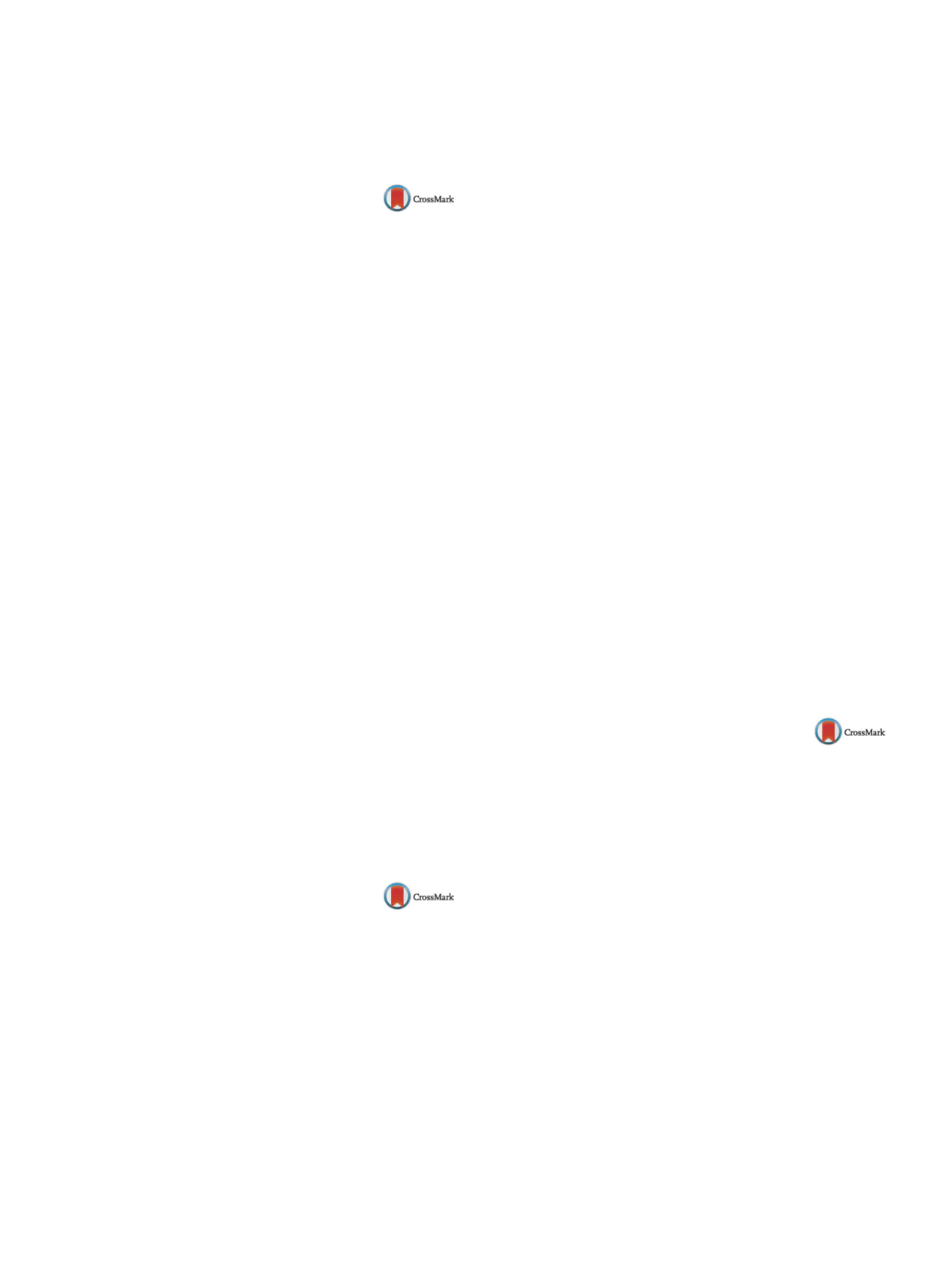

S530
25th European Congress of Psychiatry / European Psychiatry 41S (2017) S521–S582
Disclosure of interest
Supported by Dr. Willmar Schwabe GmbH
& Co. KG, Karlsruhe, Germany
http://dx.doi.org/10.1016/j.eurpsy.2017.01.716EV0387
The Association between self-stigma
and coping strategies in depressive
disorder–a cross-sectional study
M. Holubova
1 , 2 ,∗
, J. Prasko
11
University of Palacky Olomouc, Department of Psychiatry, Olomouc,
Czech Republic
2
Regional Hospital Liberec, Department of Psychiatry, Liberec, Czech
Republic
∗
Corresponding author.
Background
Self-stigma is a maladaptive psychosocial phe-
nomenon that may disturb many areas of patient’s life. In
connection with maladaptive coping strategies should make men-
tal health recovery more difficult. Specific coping strategies may
be connected with the self-stigma and also with the severity of the
disorder. The objective of the study was to explore the relation-
ship between coping strategies, the severity of the disorder and
self-stigma in outpatients with depressive disorder.
Method
Eighty-one outpatients, who met ICD-10 criteria for
depressive disorders, were enrolled in the cross-sectional study.
Data on sociodemographic and clinical variables were recorded. All
probands completed standardized measurements: The Stress Cop-
ing Style Questionnaire (SVF-78), the Internalized Stigma of Mental
Illness Scale (ISMI), and the Clinical Global Impression (CGI).
Results
The patients with depression overuse negative coping
strategies, especially escape tendency and resignation. Using of
positive coping is in average level. Coping strategies are signifi-
cantly associated with the self-stigma. Negative coping (especially
resignation and self-accusation) increase the self-stigma, using of
positive coping (primarily underestimation, reaction control, and
positive self-instruction) have a positive impact to decreased self-
stigma. The level of self-stigma correlated positively with total
symptom severity score.
Conclusions
The present study revealed the important associa-
tion between coping strategies and self-stigma in outpatients with
depressive disorders. Decreasing the use of negative strategies, and
strengthening the use of positive copingmay have a positive impact
to self-stigma reduction.
Disclosure of interest
The authors have not supplied their decla-
ration of competing interest.
http://dx.doi.org/10.1016/j.eurpsy.2017.01.717EV0388
Korean medication algorithm for
depressive disorder (KMAP-DD) 2017:
Maintenance treatment
D.I. Jon
1 ,∗
, W .Kim
2 , H.R. Wang
3 , Y.S. Woo
3 , J.S.Se
o 4 ,Y.M. Park
5 , J.H. Jeong
6 , S.H. Shim
7 , J.G. Lee
8 , K.J. Min
9 ,W.M. Bahk
31
Hallym University Sacred Heart Hospital, Psychiatry, Anyang,
Republic of Korea
2
Inje University Seoul Baik Hospital, Psychiatry, Seoul, Republic of
Korea
3
The Catholic University St. Mary Hospital, Psychiatry, Seoul,
Republic of Korea
4
Konkuk University Chungju Hospital, Psychiatry, Chungju, Republic
of Korea
5
Inje University Ilsan Paik Hospital, Psychiatry, Goyang, Republic of
Korea
6
The Catholic University St. Vincent Hospital, Psychiatry, Suwon,
Republic of Korea
7
Soonchunhyang University Cheonan Hospital, Psychiatry, Cheonan,
Republic of Korea
8
Inje University Haewoondae Baik Hospital, Psychiatry, Busan,
Republic of Korea
9
Chung-Ang University Hospital, Psychiatry, Seoul, Republic of Korea
∗
Corresponding author.
Introduction
The international guideline for treating depression
has been widely used.
Objectives
The current study focused on the maintenance treat-
ment section of the third revision of Korean Medication Algorithm
for Depressive Disorder (KMAP-DD)
Methods
A 44-item questionnaire was used to obtain the con-
sensus of experts regarding pharmacological treatment strategies
for depressive disorder. Of the 144 committee members, 79
psychiatrists responded to the survey. Each treatment strat-
egy or treatment option was evaluated with the nine-point
scale.
Results
Most clinicians answered to maintain both antide-
pressants (AD) and atypical antipsychotics (AAP) for psychotic
depression in remission state. The duration of AD maintenance:
from 19.8 weeks to 46.8 weeks for patients in remission of the first
episode, from 34.8 weeks to 78.4 weeks for the second depressive
episode, and long-term continuation for three or more depressive
episodes. Aripiprazole was the most preferred AAP. The preferred
doses of AD and AAP in maintenance treatment were about 75%
and 50% of those in acute treatment The maintenance of AAP in the
psychotic depression in remission was similar to the AD, although
shorter and less.
Conclusions
The maintenance strategies of KMAP-DD 2017 were
similar to those of KMAP-DD 2012. Most clinicians preferred to
maintain AD for substantial duration after achieving remission.
The maintenance of AAP was also preferred, but the duration was
shorter than AD.
Disclosure of interest
The authors have not supplied their decla-
ration of competing interest.
http://dx.doi.org/10.1016/j.eurpsy.2017.01.718EV0389
Is increased screen time associated
with the development of anxiety or
depression in young people?
J. Khouja
1 ,∗
, M. Munafò
1, K. Tilling
2, N. Wiles
2, C. Joinson
2,
P. Etchells
3, A. John
4, S. Gage
1, R. Cornish
21
University of Bristol, School of Experimental Psychology, Bristol,
United Kingdom
2
University of Bristol, School of Social and Community Medicine,
Bristol, United Kingdom
3
Bath Spa University, School of Society- Enterprise and Environment,
Bath, United Kingdom
4
Swansea University Medical School, Farr Institute, Swansea, United
Kingdom
∗
Corresponding author.
Introduction
Emerging evidence suggests that sedentary
behaviour, specifically time spent taking part in screen-based
activities, such as watching television, may be associated with
mental health outcomes in young people
[1] .However, recent
reviews have found limited and conflicting evidence for both
anxiety and depression
[2] .Objectives
The purpose of the study was to explore associations
between screen time at age 16 years and anxiety and depression at
18.
Methods
Subjects (
n
= 1958) were from the Avon Longitudinal
Study of Parents and Children (ALSPAC), a UK-based prospective
cohort study. We assessed associations between screen time (mea-
sured via questionnaire at 16 years) and anxiety and depression
(measured in a clinic at 18 years using the Revised Clinical Inter-
view Schedule) using ordinal logistic regression, before and after


















